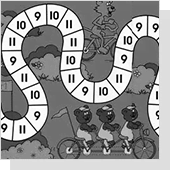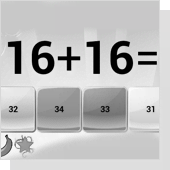
Mobile devices have taken hold with people of all ages, from children to adults. Families use tablets and smartphones both individually and together for entertainment and education. While children often use mobile technology to enjoy the entertainment options available to them, these technologies can also be used for instructional purposes. Educational apps for kids can be used to help children learn a variety of subjects and information.
Math and Science Apps

Math skills require practice to master, and many kids dislike the rote drilling involved in this mastery. Instead of having a child sit with a deck of flashcards to learn multiplication facts, you could download a math app to a tablet or smartphone that will teach them the facts in an entertaining and effective way. With the use of math apps, kids can learn while they have fun playing engaging games. Technology can bring the whole world to your child in the form of a science app. Suddenly, it’s possible to study oceans, weather, ecology, astronomy, biomes, nature, or even physics on a mobile device. Best of all, it can be as fun for kids as it is educational.
English and Language Arts Apps

Reading is the foundation for learning, so it’s essential for children to become strong readers. A bountiful selection of apps is available for teaching children phonics, English, and language arts lessons. Apps are designed to teach these concepts to children at a variety of ages and skill levels. At the earliest levels, apps teach letter recognition and sound to toddlers and preschoolers. As children progress, they can use apps to learn reading and spelling. More advanced English and language arts apps teach literacy, vocabulary, and collegiate-level reading.
Social Studies and History Apps

Interactive apps can enable kids to step back in time to learn about history. With a mobile app on a tablet or smartphone, a child can gain understanding and appreciation for different cultures. Children can also learn about geography and mapping using technology. Apps can present historic timelines of history, giving children a deeper understanding of how events shaped history and contributed to current conditions and situations. Many apps have interactive games that bring history alive in engaging and entertaining role-playing scenarios.
Critical Thinking Apps

Critical thinking is an important skill for children to develop. With critical thinking, kids can analyze problems or subjects, assessing the information involved. This analysis enables children to think about problems with a variety of perspectives, perhaps arriving at a variety of conclusions. By providing children with apps that enhance and encourage critical thinking, kids receive exposure to concepts that don’t necessarily have one right or wrong answer. They can experiment with different options in gameplay, arriving at different end results.
Educational Games

Learning skills and information is an integral part of the student experience. Learning does not have to be confined to rote memorization and stale textbooks, however. When you provide children with additional learning options, including educational apps for tablets and smartphones, they can have learning experiences that are engaging and entertaining. Children may spend more time learning academic skills such as phonics and math when you present these lessons in the form of educational games. Role-playing games can give children engaging opportunities to learn about social studies, history, and science.
Homework Helpers

Children who bring lessons home may need help from time to time. Sometimes a math problem might stump a child. Another youngster might require help reviewing spelling words. A variety of apps offer homework help in many different subjects, including math, science, language arts, and social studies. Some math apps even allow students to enter specific problems into the app to receive specific help in solving the problem. A child who gets help with homework can learn more effectively and feel empowered to continue succeeding academically.
